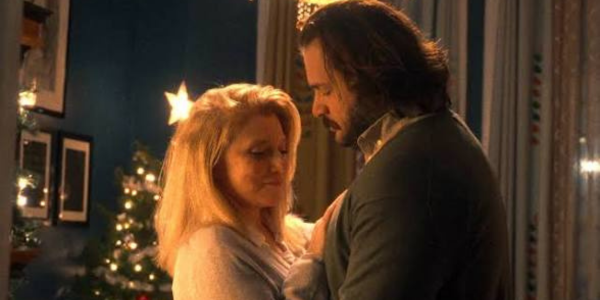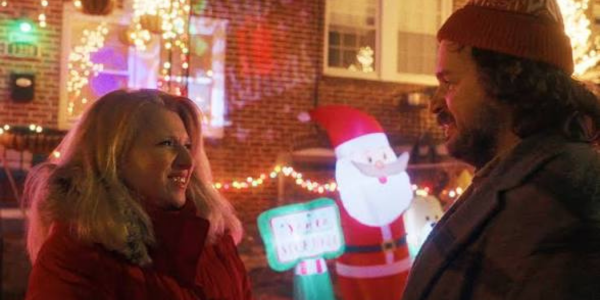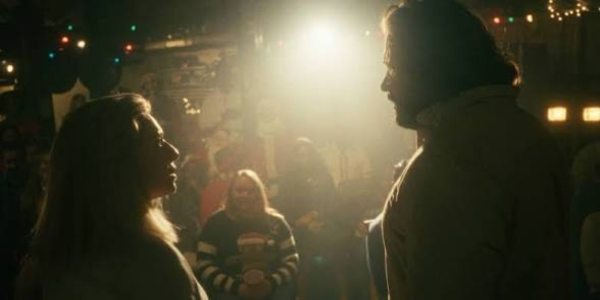After an injury lands a man in an emergency dental situation on Christmas Eve, he forms a connection with his dentist and they slowly discover what it means to live, and love, again.
There’s a running theme in films about age gap relationships where the man is younger than the woman, and it’s one that’s rather harmful and problematic; the woman winds up being a “mother figure” to the man, taking care of him in some way and otherwise erasing her identity as an individual. That’s why the fact that it completely subverted that trope, and turned it on its head, makes The Baltimorons one of my favorite films of the year so far. While it’s an unfortunately out of place Christmas film, hitting theaters and markets way too soon, it’s officially a top tier Christmas and holiday film for me simply because of how much it cares about its characters, and it forces you to do the same.
Jay Duplass obviously took some pointers from his brother, but he’s anything but an emulation. His vision is a standout, and his attention to detail is remarkably above expectation from any film, both Hollywood blockbuster and indie alike. Where other films fail to forge a connection between the audience and the characters, The Baltimorons excels in every possible way thanks to a lens that feels like we’re along for the journey rather than a voyeur observing life unfold. It’s also thanks in large part to the script, written by Duplass and Michael Strassner, who developed such flawed and beautifully human characters that you’ll be wishing the film didn’t end at just under 100 minutes. My only complaint is over the use of too much dynamic zooming. It detracted from a few scenes by becoming a distracting focal point instead of meshing with the world we’re watching.
But even that can’t stop Strassner from endearing us, as he also plays the charmingly cute and touchingly deep leaf character who feels like a role that John Candy would’ve loved to have played. His love for the character, the story, and the film itself, is felt through his every action and line delivery, and the only people who won’t like him by the final frame are people who have no soul. Joined by the equally wonderful and amazingly realistic Liz Larsen in the role opposite his, her character is shockingly well developed, written, and portrayed, making her a relatable and interesting “older female” character who never fails to be fun and, perhaps most important of all, human. The chemistry between these two is fire, as well, with no scene going cold or boring thanks to this. There’s little other cast to speak of, aside from a good supporting character from Olivia Luccardi, but frankly there doesn’t need to be. I wanted to see these two live their lives for hours on end, and I found myself crying when the film cut to the credits.
There’s also a wonderful score from Jordan Seigel that adds a kind-hearted and touching feel to every scene, never intruding or overbearing, and the cinematography from Jonathan Bregel, while a bit skant, is just right for every sequence to meld together in a warm and inviting hug of a feel good time.
The Baltimorons is one of those films that people won’t see, and yet it’s a truly remarkable and progressive slice of life that works as both a social commentary, a statement about mental health and addiction, and a battle flag for how to correctly portray a female character over the age of 50. No, she’s not just the mom or the wife. She’s a character all her own, and this is seriously how it’s done. Take notes. We need more representation of women like this.



